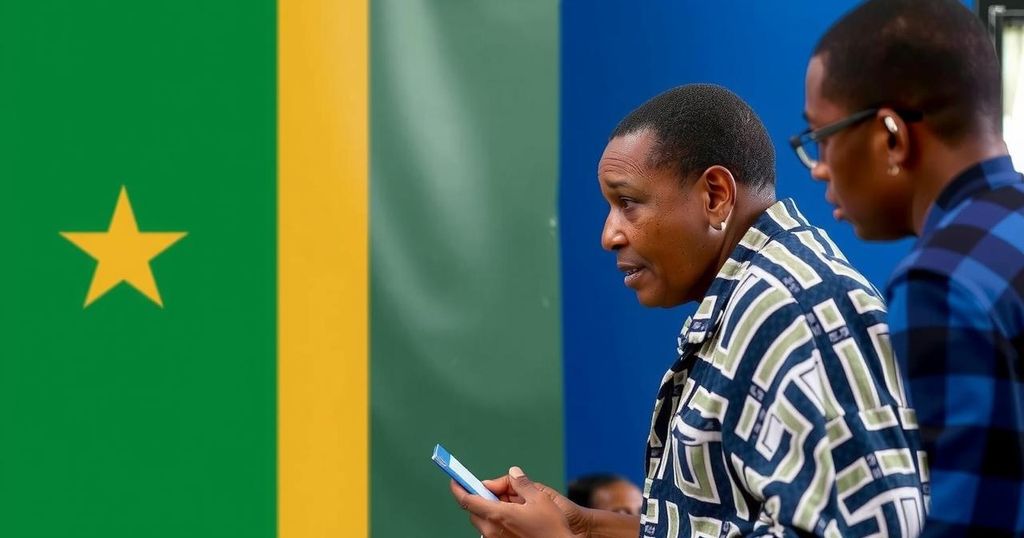Namibia’s Elections in Disarray Amid Logistical Irregularities
Namibia’s presidential and parliamentary elections have been extended due to irregularities, leading to rising tensions. The Electoral Commission admitted to logistical problems, including ballot shortages. Opposition party IPC, led by Panduleni Itula, appeals to voters amid frustration over long lines and operational failures. Nandi-Ndaitwah seeks to make history as Namibia’s first female president, while dissatisfaction among the youth indicates a potential shift in political dynamics. Similar electoral tensions in Mozambique highlight growing unease with established parties in the region.
Namibia is currently encountering significant turmoil during its presidential and parliamentary elections due to an unanticipated extension prompted by reported irregularities. As tensions escalate, the Electoral Commission of Namibia (ECN) has announced that polling stations will remain open until Saturday, following logistical issues like a scarcity of ballot papers and malfunctioning voting equipment that left citizens waiting in long lines. The opposition party, Independent Patriots for Change (IPC), is urging voters to exercise their democratic rights amidst these complications.
IPC’s presidential candidate, Panduleni Itula, acknowledged the numerous irregularities but insisted that it remains imperative for citizens to fulfill their voting duties. Meanwhile, his opponent, Netumbo Nandi-Ndaitwah of the ruling South West Africa People’s Organisation (Swapo), is striving to become Namibia’s first female president. The political climate is further complicated by widespread youth dissatisfaction stemming from high inequality and limited opportunities, driving voters to question Swapo’s long-standing dominance since independence in 1990.
Furthermore, recent electoral disturbances in Namibia draw parallels with events in Mozambique, where violent protests erupted following claims of vote rigging against their established party, Frelimo. Observers are watching closely to determine if Swapo could potentially face a similar backlash from a younger electorate eager for change, reflecting broader regional electoral trends wherein liberation parties are increasingly challenged in post-colonial contexts.
Namibia, formerly a German colony and later under South African rule, gained independence in 1990. The South West Africa People’s Organisation (Swapo) has been the ruling party since Namibia’s liberation, significantly influencing the nation’s political landscape. While Namibia is categorized as an upper-middle-income country by the World Bank, it suffers from substantial economic inequality. The current elections are critical, as electorates express increasing dissatisfaction with long-standing leadership, particularly among the youth, who are eager for reform and better opportunities.
In summary, Namibia’s elections are marked by significant operational challenges leading to a contentious extension of voting. The opposition has called upon citizens to persist in exercising their electoral rights despite these disheartening circumstances. With the youth expressing growing frustrations over political and economic inequities, the current political climate suggests that Swapo’s long-standing grip on power may soon be contested more seriously. The outcome of these elections will be pivotal for the future of governance in Namibia.
Original Source: www.aljazeera.com




Post Comment